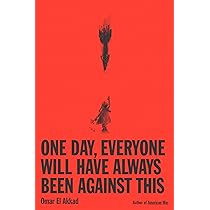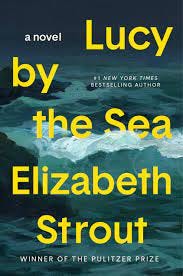Read On: Hope & Grace Amidst Tyranny
Three book recommendations worthy of your time from me, your resident book lover
There was a time when it felt like every book I read landed in my brain with a physical thud. The author, plot, style, genre – all the intricate details – were lodged there swiftly and clearly. But since the launch of Kindle in 2007, my concentration has tanked; I skim rather than immerse. It doesn’t prevent me from reading – I inhale thousands of pages – but instead of books providing oxygen, I am breathing ebook helium: chemically inert, leaving me with a short squeaky recital of what I’ve read and gone as quickly as it arrived.
When I want to fully absorb a book, to immerse myself in a writer’s thoughts and meaning, I return to paper. It’s ironic, I know, that I’m recommending these books via an online publication, but I urge you: buy them in print and cherish them.
On Tyranny: Twenty Lessons from the Twentieth Century
Graphic Edition: Written by Timothy Snyder & illustrated by Nora Krug.
You’re a thoughtful person. You don’t want to be a knee-jerk reactionary condemning everything outside your worldview as “evil.” Nor do you want to trigger Godwin’s Law,1 deflating your moral stance with the indignity of a public fart.
Get over yourself. The creeping dread that Canadians are fused at the hip with a rising fascist state isn’t hyperbole. Be brave enough to name the thing you dread.
On Tyranny is a slim 120 pages of text and illustrations that chart how the darkest moments of the 20th Century are fenceposts for today’s rising authoritarianism.
Lessons like “do not obey in advance”, “defend institutions”, “beware the one-party state”, and “listen for dangerous words” are deceptively simple, their chapters only a few pages long, yet, their impact is tremendous. “Believe in truth,” writes Snyder. “To abandon facts is to abandon freedom. If nothing is true, then no one can criticize power, because there is no basis on which to do so.”
When the world feels like a veritable shit show and angry bafflement a chronic condition, precise language is crucial. More importantly, precise language offers clarity and comfort: it names the affliction and tells you how to fight it.
One Day, Everyone Will Have Always Been Against This
By Omar El Akkad
Regarding bravery and bearing witness, it is hard to imagine a more potent record than El Akkad’s nonfiction debut.
The title comes from a tweet that went viral on October 25th, 2023. “One day, when it’s safe, when there’s no personal downside to calling a thing what it is when it’s too late to hold anyone accountable, everyone will have always been against this.”
At the time, fewer than 10,000 people in Gaza had been killed in the Israeli counterattack on Hamas2. To date, the UN reports five times that number: 48,405 dead and 111,835 reported injured3 in Gaza alone.
Born in Cairo, El Akkar’s family moved to Quebec from Qatar when he was 16. He earned a computer science degree from Queen’s University before pivoting to journalism, covering the war in Afghanistan, Guantanamo Bay’s military trials, and the Arab Spring in Egypt for the Globe and Mail. He is no stranger to war.
His narrative is momentous, beautiful, and heartbreaking: a dissection of the West’s complicity in the genocide of Palestinians and the grotesque artifice that lets us look away from what – in our silence – we have condoned.
Lucy by the Sea
By Elizabeth Strout
Once your heart has been broken by the first two books, turn to Elizabeth Strout’s Lucy by the Sea for something resembling comfort. Inconceivably, it is Lucy’s experience of lockdown during the Covid epidemic that will help ease the soul.
Lucy’s perplexed response to Covid’s reshaping of her world settles in the mind like a distorted drift of perverted hygge. It is not the warmth of coziness, the mindful simplicity of chosen minimalism, but the disoriented reckoning of a woman confronting a world reduced to stark polarities. As Lucy moves from New York to a coastal town in Maine, her days become a litany of contrasts: life and death, sickness and health, togetherness and isolation, wealth and poverty, the vaccinated and the unvaccinated, the urban and the rural.
With the Covid lockdown behind us, there is a peculiar solace in returning to Lucy’s world, to relive its strangeness and reflect on one person’s experience of how we endured. How people married and divorced, welcomed children or lost them, worked or struggled to afford food, and, above all, how they treated one another.
In crisp yet gentle prose, Strout’s compassion for Lucy, and Lucy’s generosity for everyone around her – regardless of their frailties and complexities – is a balm for the spirit. How strange that a novel set against one of this century’s greatest horrors can offer such unexpected comfort today.
Godwin's Law says that the longer an online discussion goes on, the more likely someone will compare another person or argument to Hitler or the Nazis. Triggering Godwin’s Law usually derails the conversation and weakens the argument, as Nazi comparisons are often seen as exaggerations or distractions.
Oxford English Dictionary, s.v. "Godwin’s Law," accessed March 20, 2025, https://www.oed.com/dictionary/godwins-law_n?tl=true.
"The Middle East in Crisis: 7 October, the Day That Changed the World," The Guardian, September 29, 2024, https://www.theguardian.com/world/2024/sep/29/the-middle-east-in-crisis-7-october-the-day-that-changed-the-world.
United Nations Office for the Coordination of Humanitarian Affairs (OCHA), Reported Impact Snapshot: Gaza Strip, March 4, 2025, accessed March 20, 2025, https://www.ochaopt.org/content/reported-impact-snapshot-gaza-strip-4-march-2025.






